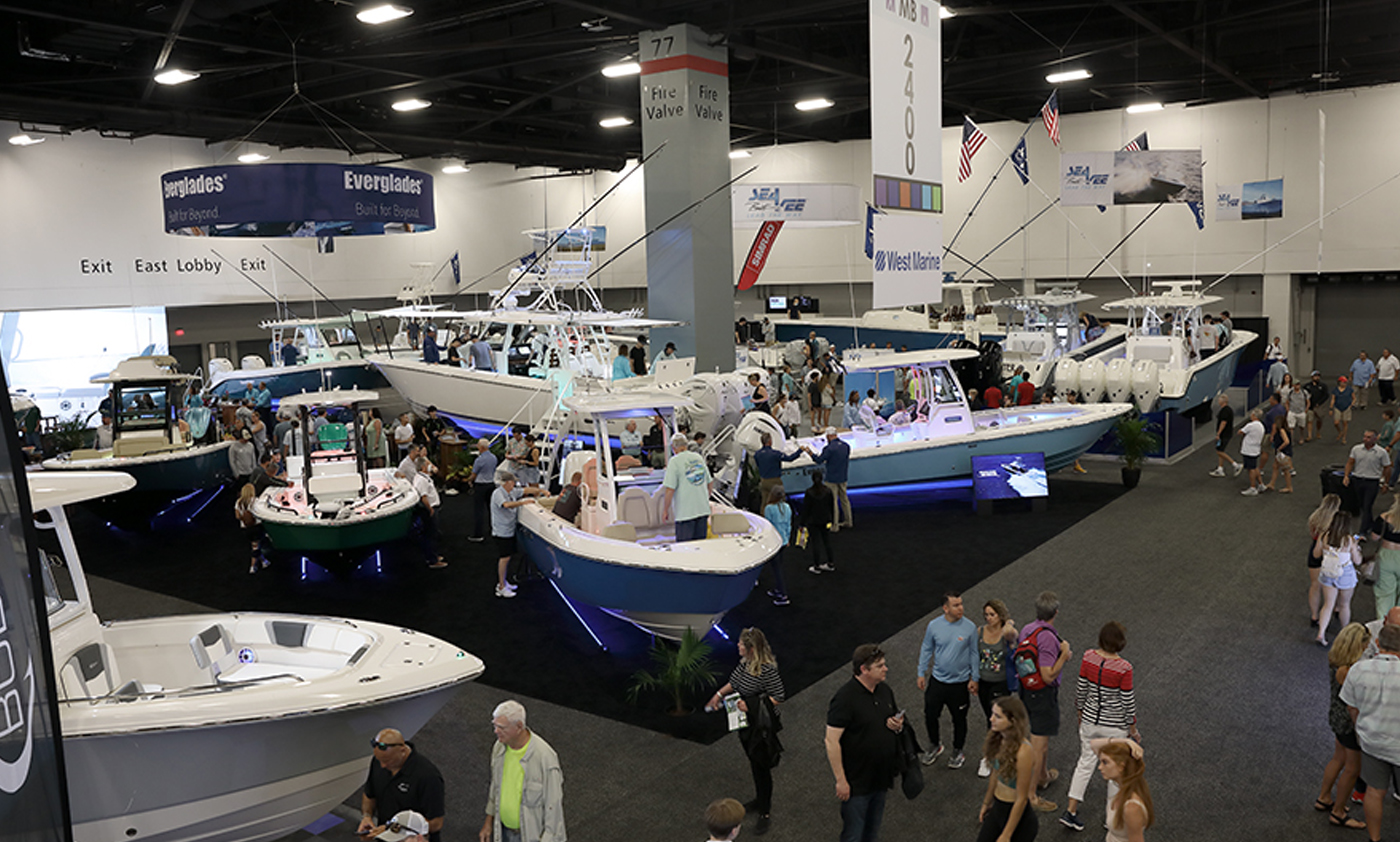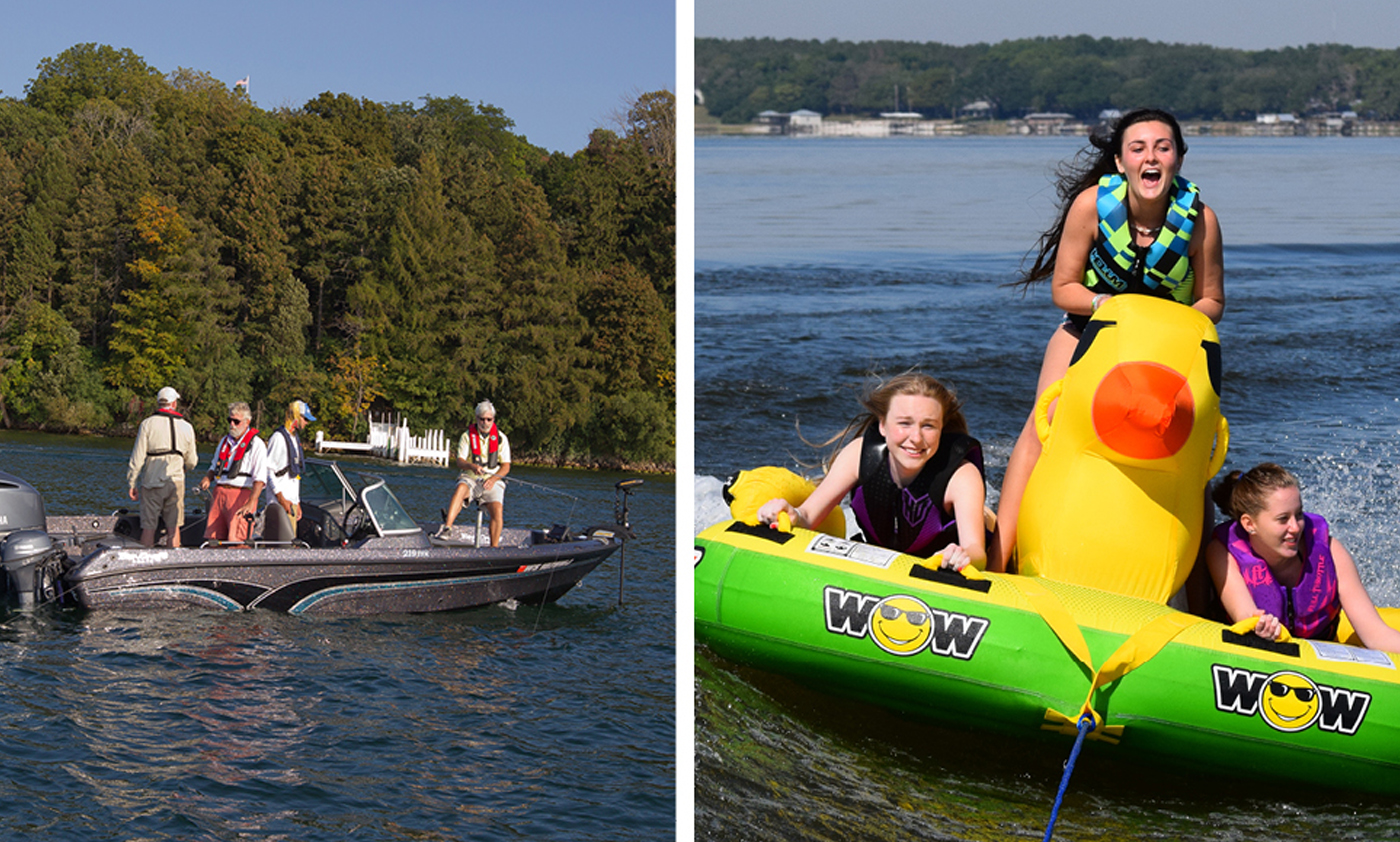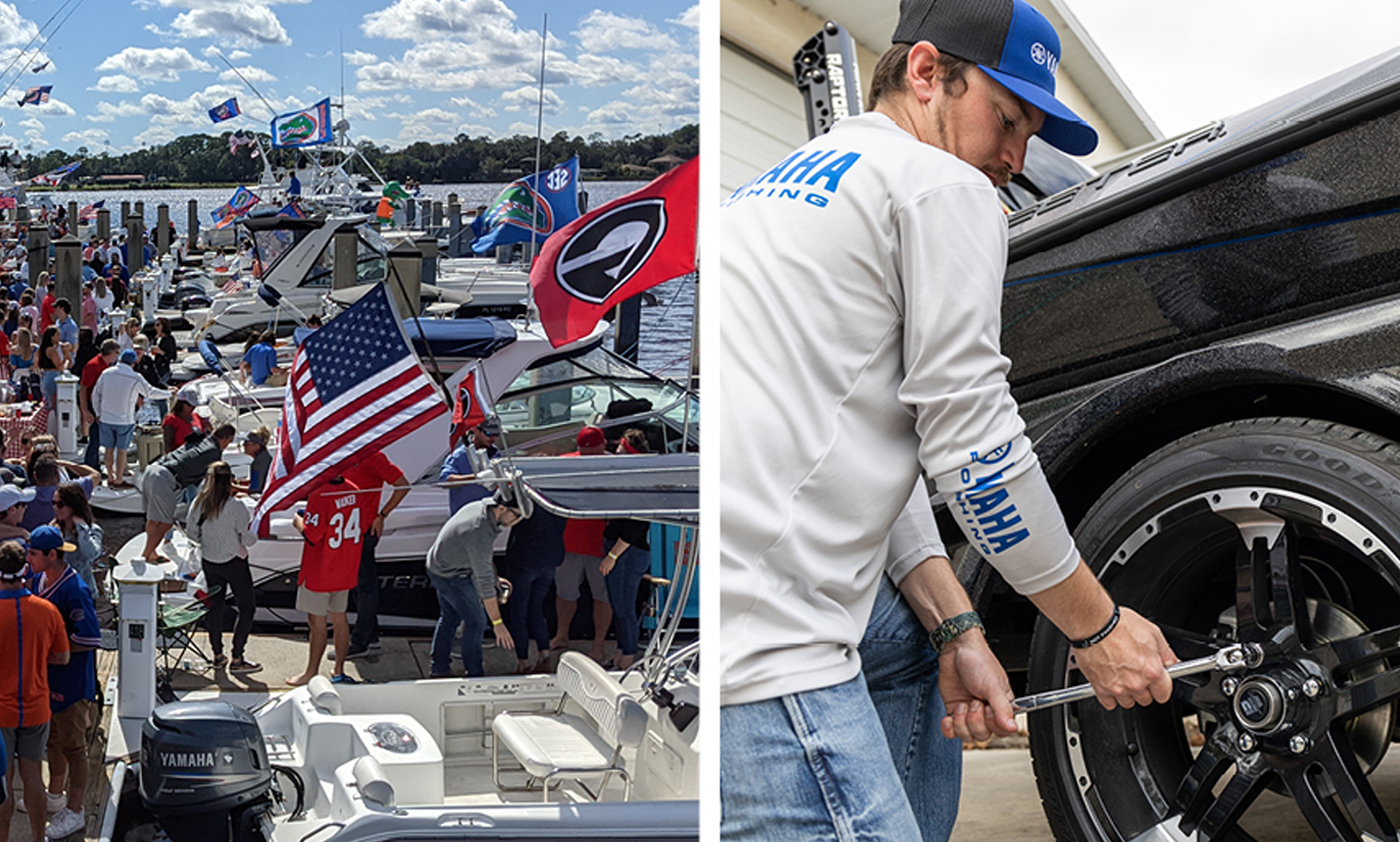First-time boat buyers learn a lot during their first year of ownership. They discover the thrill of taking a boat out on a beautiful weekend is like no other recreational activity. If they have kids, they are pleasantly surprised that boating is one of the few shared activities that the youngsters look forward to as much as the parents.
Unfortunately, some new boat buyers also discover they haven’t done enough due diligence to prepare for the entire scope of boat ownership. They either bought the wrong boat or didn’t factor in all the expenses they would incur.
However, by doing some research before buying a boat, new owners can make the right decisions and not have to learn lessons the hard way.
What Kind of Boat Should You Buy?
For those who have never owned a boat and have had limited experience on the water, it’s hard to know what to buy. Some boats are designed for specific activities, while others are good at several things. For many, a good choice for a first boat is one that allows them to explore many different activities that will help them learn where their passions lie. Boats like pontoons or deckboats are multi-taskers. While center console fishing boats are primarily designed as fishing boats, many models have family-friendly features that are also good for other activities. Choose a boat that allows you to keep your options open.

Attend a Boat Show
A boat show is a good place to see many different models at one time. However, seeing so many boats can be information overload if you haven’t done some research beforehand. A good start to formulating a game plan is to check out Yamaha’s 11 Tips for Navigating a Boat Show.
Find a Great Dealer
Probably the most important decision you’ll make is choosing the right boat dealer. A great boat dealership with an excellent service department can help you navigate the process from A to Z. Their associates will ask lots of questions about how you think you might use a boat and will assist you in establishing a realistic budget that takes into account all aspects of boat ownership, put you in the right boat, and help you learn how to operate it. Do lots of research, ask other boaters about their experiences and read reviews.

New or Used?
Your first big decision is whether to buy a new or used boat, and both have pros and cons. With new boats, while you pay more upfront and will take a hit on depreciation, you start with a clean slate and won’t inherit someone else’s problems. They also have warranties that help protect against big repair bills. Used boats give you more boat for your money but often have higher maintenance costs. If you are a new boater looking at used boats, consider buying from a reputable dealer rather than one you find online. Most used boats are sold as-is, and you will likely never see a private seller again.
What Size Boat Should You Buy?
Many factors should be considered when deciding how big of a boat to buy. How many people will typically be aboard? Will you be boating on large bodies of water like reservoirs or the open ocean, where it can get rough? What is your budget? Is it a boat you’re comfortable handling? Can your vehicle tow it?

Your Boat Budget Should Include All Costs
The purchase price is only one of the costs boat buyers incur. Make sure to consider all the other expenses when setting a budget.
Boating opens up a new world of beauty, fun, and relaxation and is a great family bonding activity. But make sure to do your research and know the entire scope of what boat ownership entails.
Back to Blue Life
Unfortunately, some new boat buyers also discover they haven’t done enough due diligence to prepare for the entire scope of boat ownership. They either bought the wrong boat or didn’t factor in all the expenses they would incur.
However, by doing some research before buying a boat, new owners can make the right decisions and not have to learn lessons the hard way.
What Kind of Boat Should You Buy?
For those who have never owned a boat and have had limited experience on the water, it’s hard to know what to buy. Some boats are designed for specific activities, while others are good at several things. For many, a good choice for a first boat is one that allows them to explore many different activities that will help them learn where their passions lie. Boats like pontoons or deckboats are multi-taskers. While center console fishing boats are primarily designed as fishing boats, many models have family-friendly features that are also good for other activities. Choose a boat that allows you to keep your options open.

Attend a Boat Show
A boat show is a good place to see many different models at one time. However, seeing so many boats can be information overload if you haven’t done some research beforehand. A good start to formulating a game plan is to check out Yamaha’s 11 Tips for Navigating a Boat Show.
Find a Great Dealer
Probably the most important decision you’ll make is choosing the right boat dealer. A great boat dealership with an excellent service department can help you navigate the process from A to Z. Their associates will ask lots of questions about how you think you might use a boat and will assist you in establishing a realistic budget that takes into account all aspects of boat ownership, put you in the right boat, and help you learn how to operate it. Do lots of research, ask other boaters about their experiences and read reviews.

New or Used?
Your first big decision is whether to buy a new or used boat, and both have pros and cons. With new boats, while you pay more upfront and will take a hit on depreciation, you start with a clean slate and won’t inherit someone else’s problems. They also have warranties that help protect against big repair bills. Used boats give you more boat for your money but often have higher maintenance costs. If you are a new boater looking at used boats, consider buying from a reputable dealer rather than one you find online. Most used boats are sold as-is, and you will likely never see a private seller again.
What Size Boat Should You Buy?
Many factors should be considered when deciding how big of a boat to buy. How many people will typically be aboard? Will you be boating on large bodies of water like reservoirs or the open ocean, where it can get rough? What is your budget? Is it a boat you’re comfortable handling? Can your vehicle tow it?

Your Boat Budget Should Include All Costs
The purchase price is only one of the costs boat buyers incur. Make sure to consider all the other expenses when setting a budget.
- Financing: In addition to the initial purchase price and state taxes, most buyers will finance their boats. Currently, the best boat loans start between 6.4% and 7.5%, depending on
the cost of the boat and your credit score. Usually, lenders will accept longer terms for boats than cars, which keeps monthly payments lower and costs the buyer more in the long run. - Insurance: Boat insurance is a bargain compared to auto insurance, and all boaters should have it. The cost is determined by many factors, such as the size and value of a boat, where you
live, and boater experience and training. To get a ballpark idea of the cost, check out the article, How Much is Boat Insurance? - Registration: Each state sets its own registration fee, ranging from $28 to $150. Go here to find your state’s cost.
- Maintenance and Repairs: This cost could vary significantly due to conditions such as the age of the boat, but expect to spend about 10 percent of a boat’s value per year. Budget more if you have an older boat.
- Boat Storage: The least expensive way to store a boat is to keep it on a trailer at your house. However, some homeowner associations forbid this, so check in advance for any restrictions.
If this is the case, a storage lot with good security is another option. Keeping a boat at a marina in a slip or in-rack storage is more expensive but makes using your boat more convenient, which usually means more days on the water. The cost is dependent on where you live. - Will Your Vehicle Tow Your New Boat?
- If a boat you are looking at is on a trailer, ensure your vehicle can safely tow it. To learn more about the technical details of towing, click here.
- Fuel: If you rely on gas from marinas, know it costs $1-2 more than on land. Factor into your budget that you will burn more gas for activities like watersports rather than fishing or hanging out at the sandbar, where the key is often in the off position.
- Winter Prep and Storage: For those who live in areas where it freezes, special precautions are needed to protect your investment against Old Man Winter. For a more comprehensive look at what this entails, check out the Yamaha Blue Life article, “Are You Ready for Winter?”
- Licensing Requirements and Education
- Many states require boat drivers to successfully complete an education course. To learn about your state’s requirements, visit the U.S. Coast Guard website. Choose a dealer who will help you understand the basics of boating and will work with you until you are comfortable. If you know an experienced boater, take them along on your first few outings. Don’t try to learn how to boat on your own by trial and error.
Boating opens up a new world of beauty, fun, and relaxation and is a great family bonding activity. But make sure to do your research and know the entire scope of what boat ownership entails.
